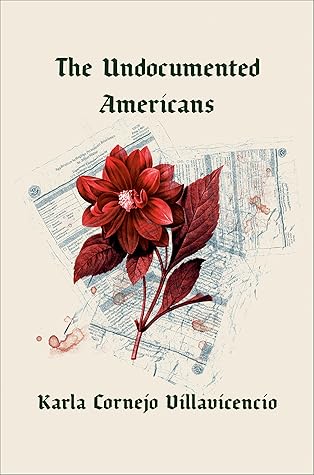More on this book
Community
Kindle Notes & Highlights
Read between
January 27 - February 2, 2022
I couldn’t see my family in them, because I saw my parents as more than laborers, as more than sufferers or dreamers. I thought I could write something better, something that rang true. And I thought that I was the best person to do it. I was just crazy enough. Because if you’re going to write a book about undocumented immigrants in America, the story, the full story, you have to be a little bit crazy. And you certainly can’t be enamored by America, not still.
I almost wish they’d called us something rude like “crazy fuckin’ Mexicans” because that’s acknowledging something about us beyond our usefulness—we’re crazy, we’re Mexican, we’re clearly unwanted!—but to describe all of us, men, women, children, locally Instagram-famous teens, queer puppeteers, all of us, as workers in order to make us palatable, my god. We were brown bodies made to labor, faces pixelated.
“In times of crisis, day laborers are often the first responders,” one labor organizer told me.
Can we imagine that he was capable of kindness, even as he was drinking? That he was capable of courage, even as he was wounded? What if this is how, in the face of so much sacrilege and slander, we reclaim our dead?
Contractors have mastered a plantation model in their line of work, exploiting whatever sense of community that might exist among Latinx people. The workers think there are people along the chain of command who are watching out for them, but melanin and accents are ineffective binding substances.
Researchers have shown that the flooding of stress hormones resulting from a traumatic separation from your parents at a young age kills off so many dendrites and neurons in the brain that it results in permanent psychological and physical changes. One psychiatrist I went to told me that my brain looked like a tree without branches.
Ivy’s baby has regained her vision, but nobody knows what the long-term effects of the water poisoning will be in her little body. The wait is torturous for Ivy. It is torturous for her mom. It is torturous for the community. It is not torturous for the government. They want us all dead, Latinxs, black people, they want us dead, and sometimes they’ll slip something into our bloodstreams to kill us slowly and sometimes they’ll shoot and shoot and shoot and shoot and shoot shoot and shoot and shoot and shoot and shoot shoot and shoot and shoot and shoot and shoot shoot and shoot and shoot and
...more
What I saw in Flint was a microcosm of the way the government treats the undocumented everywhere, making the conditions in this country as deadly and toxic and inhumane as possible so that we will self-deport. What I saw in Flint was what I had seen everywhere else, what I had felt in my own poisoned blood and bones. Being killed softly, silently, and with impunity.
I personally subscribe to Dr. King’s definition of an “unjust law” as being “out of harmony with the moral law.” And the higher moral law here is that people have a human right to move, to change location, if they experience hunger, poverty, violence, or lack of opportunity, especially if that climate in their home countries is created by the United States, as is the case with most third world countries from which people migrate. Ain’t that ’bout a bitch?


